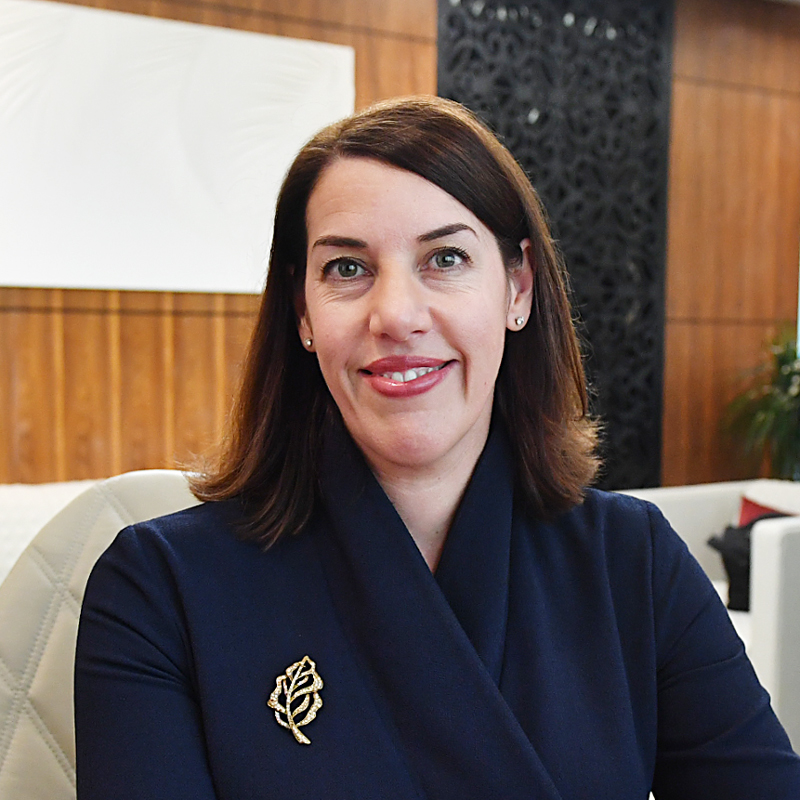When Hannah Lim-Johnson came aboard as the new senior vice president and chief legal officer for Kelly Services in September 2017, she was immediately given an ambitious project: rethinking the company’s external legal partners and how Kelly works with them. The task was part of Kelly Services’ internal initiative focused on finding ways to make the company more effective and efficient, and to tackle it, Lim-Johnson spent her first ninety days evaluating what changes were needed and seeking potential areas for growth. Her resulting moves have not only impacted how Kelly Services’ outside counsel are paid but how diverse they are as a group.

To kick things off, Lim-Johnson worked with the company’s procurement department to create a request for proposal (RFP), the first objective of which was to establish an annual flat-fee arrangement with potential external partners. Lim-Johnson believes such an arrangement will make Kelly Services’ external partners more invested in helping the company achieve its goals, rather than just maintaining a service relationship through which they can bill for more hours. “We want law firms that we’re partnering with to have skin in the game,” Lim-Johnson says.
When she was in private practice herself, she recalls, she would only get a snapshot of what was happening within the companies she did work for. It wasn’t until going in-house that she was able to see how significantly one litigation case can impact a corporation. She believes a flat-fee arrangement will help Kelly Services’ outside counsel become more efficient and invest in gap-filling and training, which will help reduce Kelly’s overall case count. “I am trying to replicate the in-house experience as much as possible for our external partners, where they are not looking at a snapshot but are actually walking with us in a true partnership,” Lim-Johnson says. “When a litigation matter impacts us, it impacts them as well.”
The second objective of the RFP was diversity and inclusion. “Diversity is very important to Kelly as a firm, to work with diverse vendors and professionals who reflect the communities in which we live and work,” says Lim-Johnson.
In the end, based on the firm’s diversity offerings, Kelly Services hired Seyfarth Shaw to handle its US labor and employment litigation and advice and counseling work. As a result, Kelly Services now works with a greater variety of outside attorneys, including Kevin Fritz, a Seyfarth lawyer with muscular dystrophy who devised a critical new technology, the Kelly Counseling Automation Tool, which he affectionately named KCAT.
Prior to the deployment of KCAT, in September 2018, to receive day-to-day legal advice at Kelly Services, an employee would have to internally submit a question to a paralegal, who would then send it to Seyfarth Shaw, where the query would be assigned to one member of an internal counseling group, based on question type. One of the individuals would then have to volunteer, draft a possible solution, have it reviewed and approved, then send it back to a paralegal at Kelly, who would ultimately shepherd it on to the person who made the initial request. KCAT allows Kelly Services to get advice out to its employees at a rapid rate and in a streamlined, organized fashion without having to route questions through numerous employees.
“Simply stated, KCAT provides an automated way for Kelly employees to submit requests for legal advice,” says Fritz, who brought the tool to life in six short weeks. “It presents as a straightforward logic-based system and cuts out all the redirects and pain points that slow things down. KCAT is really a culmination of the way that I live my life. Because of my physical disability, my muscles are weak. Whenever I do something in my job or in my own life, I am thinking of ways to exert less physical energy while still delivering the same results. KCAT provides just that: less exertion of energy for the same great results.”
Kelly Services considers Kevin an invaluable partner. “If we didn’t have Kevin on our team, we would have never been able to realize the benefits of the automation tool,” Lim-Johnson says.
Looking ahead, KCAT is expected to decrease by 50 percent the time spent fielding questions from Kelly Services’ employees across the country. And, it will capture trends while delivering consistent advice to help lower risk. It’s just one of many benefits the company is enjoying after rethinking its external partnerships to achieve a better payment structure and promote diversity.
“I am really glad that Kelly Services is able to reap the benefits of this innovation, and I’m very proud to be a partner of Kelly’s,” Fritz says. “The company does a great job of supporting, appreciating, and recognizing people from all backgrounds, which is great for business all around.”


